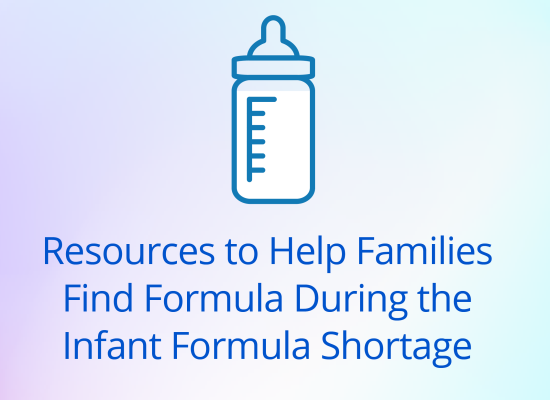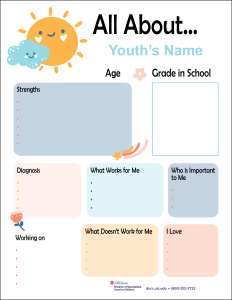Introducing “All About Me” Pages to Highlight Your Child’s Strengths, Needs and More

We’ve created free templates you can personalize to help doctors, schools and others get to know your child
It takes a village to care for children and youth with special healthcare needs. Parents and caregivers must partner with many different team members — specialists, nurses, therapists, educators and so on — to help their children reach their full potential.
Ensuring everyone understands your child and their unique needs can be exhausting. We want to help make it easier to share your child’s strengths, wants, goals and more.
We’ve created “All About Me” Pages that you can personalize to help anyone get to know your child. These free templates highlight what works best for your child, what they like and dislike and who they are as a person.
There are a variety of designs to choose from to help you capture your child’s personality and what makes them unique.
Visit the new “All About Me” Pages section of our website to see the templates and learn how to customize them for your child.
Our “All About Me” Page templates are available for anyone to download and customize.
If you are a Division of Specialized Care for Children (DSCC) participant and need help using the templates, please contact your Care Coordinator.
These pages are a result of feedback from our annual family surveys and our Family Advisory Council meetings.
We hope these pages can be helpful conversation starters with new doctors, nurses, teachers and other caregivers for your child.
Formula Shortage Resources for Families

Helpful information and tips to find formula and keep children healthy
The infant formula shortage continues to affect families across the country.
Formula is not only important for babies’ nutrition but also for some young children, teens and adults with medical needs.
Several resources are available nationwide and here in Illinois to help families during the shortage:
- The U.S. Department of Health and Human Services (HHS) website has resources in a variety of languages to help families find infant formula during the shortage. These resources include information on safe substitutes, formula company contacts and community programs.
- The Illinois Department of Human Services (IDHS) has trained caseworkers to help families with formula questions. You can contact the IDHS Help Line at (800) 843-6154. The Help Line is primarily for Supplemental Nutrition Assistance Program (SNAP) and Women, Infants and Children (WIC) participants but is open to all Illinois residents.
- For Illinois WIC participants, a waiver now allows for flexibility in the size and type of formula available to buy with WIC benefits. More details are on IDHS’ “Having Trouble Finding Formula” page.
- Illinois WIC programs also provide a wide range of support for breastfeeding mothers and funds for healthy foods, including fresh fruits and vegetables. More information and updates can be found on the Illinois WIC website. Families can also call (217) 782-2166 for additional support
- Illinois WIC programs also provide a wide range of support for breastfeeding mothers and funds for healthy foods, including fresh fruits and vegetables. More information and updates can be found on the Illinois WIC website. Families can also call (217) 782-2166 for additional support
- HealthyChildren.org, the parenting website of the American Academy of Pediatrics, provides tips on finding baby formula during the shortage and what you may safely consider if you can’t find any. The site is updated regularly with helpful information and the latest guidance.
- The U.S. Food and Drug Administration (FDA) has released information on the international formulas that will soon be on store shelves in the United States. Some of these formulas have different mixing guidance and will require conversion from milliliters to ounces. The FDA has a “Tips for Preparing Imported Infant Formula” handout available to help. (The handout is also available in Spanish.)
Remember that you should not water down your baby’s formula to stretch it out. You also should not make formula at home or discard formula unless it is expired or part of the recall.
HHS notes that in most cases, you can feed your baby any brand of formula that is available.
If your child has special health needs, be sure to check with their doctor about medically appropriate and safe feeding alternatives. Your doctor may have samples in stock or know of other local organizations that can help.
Please contact your pediatrician for guidance on adjusting feeding practices and be sure to stay in touch about any issues or concerns with your child’s nutrition.



